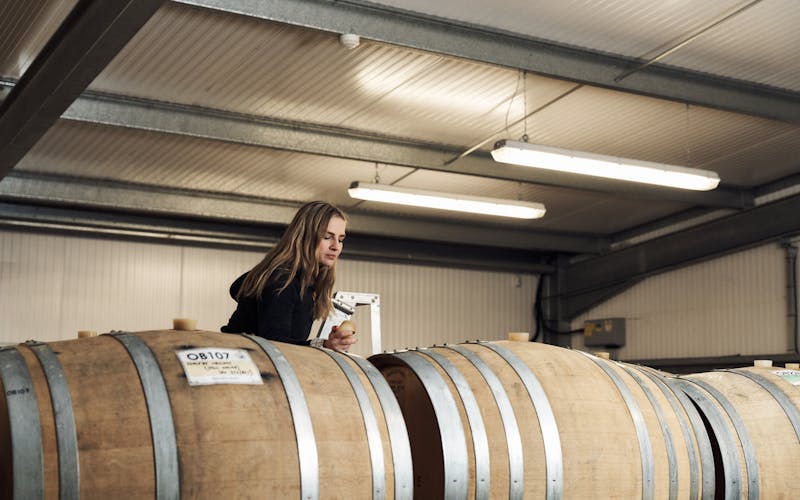
In June this year Walpole published its Economic Impact report which clearly demonstrated that the high-end creative and cultural industries make a substantial and distinctive economic contribution to the UK. The sector as a whole has performed well, growing 49% in four year to be worth £48bn - outpacing national economic growth. The British luxury sector creates jobs in all regions of the UK and makes a considerable contribution to the travel and tourism industries and UK manufacturing. Overall, this thriving sector contributes to UK competitiveness and reputation.
The report also outlined the policy recommendations that would ensure a suitable framework for the sector to flourish and meet sales forecasts of around £65 billion by 2024. A number of these policy recommendations are directly addressed in the manifestos of the main political parties.
Brexit
Uncertainty around Brexit remains one of the highest business priorities and the need to avoid a no-deal Brexit is critical for the British luxury sector. Earlier this year Walpole warned of the potential £6.8bn that is a stake in lost expert revenues in the event of no deal.
Around the time of the referendum in 2016, 98% of Walpole members said they would prefer to remain in the EU, since then Walpole has pressed the Government to deliver a pro-business exit that protects, amongst other things, access to talent and frictionless trade with our closed trading partner and largest export market, the EU.
The Conservatives are leading their election campaign with the slogan ‘Get Brexit Done’, by which they are referring to passing the EU Withdrawal Bill through Parliament by January 31st and agreeing a new trade deal with the EU by the end of the agree transition period in December 2020.
Walpole comment: Should the Conservatives get an overall majority in Parliament and pass the EU Withdrawal Bill, there is still the potential for a new no deal cliff edge in December 2020 as the UK would need to negotiate, draw up and ratify a Free Trade Agreement with the EU before then. If there was to be an extension to the transition period, this would need to be agreed on or before 1st July 2020.
Labour have stated that they would negotiate a new Brexit deal within three months including membership of customs union and access to Single Market and would offer the public a ‘final say’ within six month on any negotiated deal with an option to remain in the EU.
Walpole comment: This option would require another extension to Article 50 for negotiations to take place and many consider six months too tight a timeframe for a second referendum to be agreed, legislated and enacted.
The Liberal Democrats would revoke Article 50 and Brexit would be cancelled immediately without a second referendum.
Walpole comment: The lack of a democratic mandate to revoke Article 50 is troubling to many who fear further divisions in an already divided country.
Skills and Training
The British luxury sector relies on highly-skilled craftspeople and a creative workforce. The de-prioritisation of creative and vocational education in schools and tertiary education has had a major impact on luxury companies’ access to the necessary skills and talent.
Apprenticeships
The Conservatives say that they would make improvements to the existing Apprenticeship Levy.
Walpole comment: This would be welcomed by the British luxury businesses, particularly those who rely on apprenticeships to train the skilled workforce they need to continue making their products in the UK. The current Apprenticeship Levy has been widely criticised by business for being too complex and placing a high administrative burden on companies who would like to access the levy, so there would need to be significant improvements to make it accessible for employers.
Labour also want to reform the Apprenticeship Levy in order to close the skills gaps facing the whole of the UK and would place more focus on upskilling to tackle the climate emergency. They also want to it easier for employers to spend the levy by allowing it to be used for a wider range of accredited training.
Walpole comment: UK luxury is concerned about adopting more sustainable business practices and ensuring the development of skilled apprentices to deliver this would be welcomed. However, it is a priority for the sector that making and technical skills are also preserved and being passed to the next generation. Help encouraging young people into the broad range of careers that are possible in the luxury sector would be a positive.
The Liberal Democrats have pledged £10bn more spending on schools and would introduce a budget for adult training and education as well as developing a national skills strategy.
Walpole comment: Investment in school-aged children and adults looking to re-train would be welcome for the reasons outlined above.
Migration
The British luxury sector relies on a workforce of multilingual customer service and sales assistants to support both domestic customers and international visitors who spent £4.5bn on luxury goods in 2017.
The conservatives have stated that they would introduce an Australian-style points-based immigration policy to control immigration and have proposed (although not officially backed) a minimum salary threshold of £30,000 for EU citizens who want to come and live and work in the UK.
Walpole comment: This would be problematic for UK luxury businesses. Emphasis on increasing the £30,000 minimum salary threshold does not take account of the need for access to workers who earn less than that. For example, skilled retail employees would likely fall short of the minimum salary threshold, as would those with leather working and textile skills and front of house and catering staff.
Labour would scrap the existing net migrations targets, but have stopped short of complete freedom of movement indicating that the migration of EU citizens would be negotiated as part of Labour’s new Brexit deal.
Walpole comment: Due to the skill shortages mentioned above, coupled with the need for multilingual retail employees and seasonal workers the British luxury sector is reliant on migrant workers. Equally, changes to free movement of people will impact on sector’s ability to attract top creative and design talent and on the cultural diversity of teams.
Under the Liberal Democrats, who are seeking to revoke Article 50 entirely, freedom of movement would continue in its current form
Walpole comment: Access to talent and freedom of movement of people would be preferable for the UK luxury business model.
International Visitor Experience
The British luxury and high-end sectors contribute significantly to in-bound tourism into the UK with visitors specifically choosing to visit Britain to buy British luxury goods and experiences. Like many other business sectors, the UK luxury sector supports the expansion of London’s airports and other infrastructure projects to enable domestic and tourist business development and spending.
Airports
Research from Let Britain Fly shows that London’s already busy airports will be over capacity by mid-2020 and demand is set to double by 2050. This not only impacts the visitor experience but also have links and costs to trade.
Both Labour and the Conservatives are not against airport expansion, provided targets are met around air quality and noise.
The Liberal Democrats are against airport expansion have would ban any increase in runways at Heathrow, Gatwick and Stanstead. They would increase taxation on frequent fliers.
Tax and Investment
Luxury in the UK is highly entrepreneurial and spans numerous sector verticals, with SMEs accounting for around 60% of British luxury brands. To secure their supply chains, businesses will often invest in their suppliers, or even buy them outright to ensure long-term access to the unique skills, expertise and manufacturing capability. While it is comparatively simple for luxury entrepreneurs to start their business in the UK, it can be harder to scale those businesses due to a number of factors including finding the right investment.
Support for SMEs
All three of the main political parties have outlined schemes to support SMEs. The Conservatives say they will “expand start-up loans, which have particularly high take-up from women and BAME entrepreneurs.” To tackle late payments that “leave small businesses and the self-employed waiting months to be paid”, Labour says its measures will include banning late payers from public procurement. The Liberal Democrats want to create “a new ‘start-up allowance’ to help those starting a new business with their living costs in the crucial first weeks of their business” and would also expand the role of the British Bank to enable it to “tackle the shortage of equity capital for growing firms and providing long-term capital for medium-sized businesses.”
Business Rates
Again, all three main parties acknowledge the need to business rates reform. The Conservatives have committed to a fundamental review of the business rates system and said that they would “further reduce business rates for retail businesses.” Labour would approach the issue by “reviewing the option of a land value tax on commercial landlords as an alternative and develop a retail sector industrial strategy.” The Liberal Democrats would look to replace business rates “with a Commercial Landowner Levy based solely on the land value of commercial sites rather than their entire capital value, thereby stimulating investment, and shifting the burden of taxation from tenants to landowners.”
Sunday Trading
The British luxury sector supports the extension of Sunday trading hours as it puts the international shopping centres of the West End and Knightsbridge at a competitive disadvantage globally.
Neither the Conservatives nor the Liberal Democrats specifically mention Sunday Trading in their manifestos.
Labour say they would keep the current trading restrictions in place.
Tax
The Conservatives have cancelled plans to lower Corporation Tax, keeping it at 19% and have committed to simplifying taxation to make it fairer by “redesigning the tax system so that it boosts growth, wages and investment.” They would put a ‘triple lock’ on taxes, so no increases in income tax, National Insurance or VAT.
Labour would seek radical reform that “will end the unfairness that sees income from wealth taxed at lower rates than income from work” and have also said that they “will launch the biggest ever crackdown on tax avoidance and evasion and reform the inefficient system of tax reliefs.” Labour also guarantee no raise in VAT. Labour also announced the intention for income tax rate of 50% on people earning £125,000 and over, as well as lowering the threshold for the additional income tax rate of 45 % from £150,000 to £80,000.
The Liberal Democrats want to take Corporation Tax to 20% “and keep the rate stable with a predictable future path.” They will also “simplify business taxation to lower administration costs – supporting smaller companies – and reduce opportunities for tax avoidance." Under the Liberal Democrats capital gains tax-free allowance would be abolished in a move to reduce income generated from wealth as opposed to income.
Please contact Carly von Speyr, Head of Communications, Walpole for further information.





